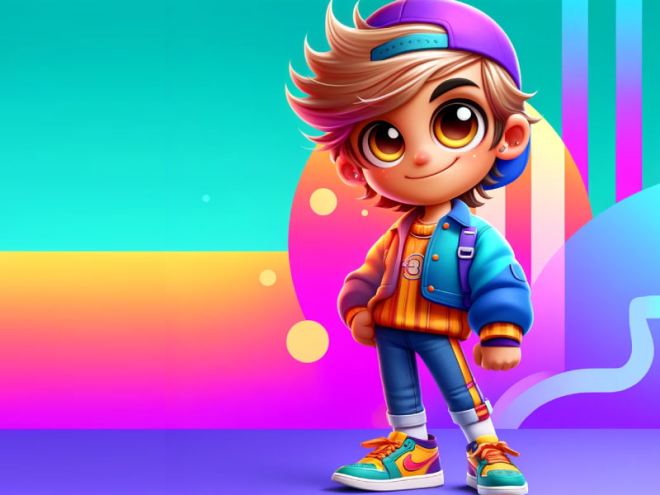The Rise of Machine Gun Kelly: From Rap to Rock
MGK started as a rapper, rising from Cleveland’s underground hip-hop scene with sharp lyrics and raw authenticity. His aggressive flow and battle-rap persona captured the attention of a younger, rebellious audience. However, what sets MGK apart from many in the rap game is his decision to shift musical gears—most notably with his 2020 pop-punk album Tickets to My Downfall. It wasn’t just a shift; it was a rebirth.
His latest single, “Lonely Roads,” continues this trend (particularly on TikTok and Instagram) of blending rap, rock, and alternative sounds. The track features introspective lyrics, raw guitar riffs, and melodies that push the boundaries of genre expectations. By embracing his multi-genre appeal, MGK has shown how stepping outside of traditional lanes can lead to broader success.
Lesson 1: Evolution is Key to Longevity
MGK’s shift from rap to pop-punk was risky, but it paid off in spades. He tapped into the resurgence of punk-rock nostalgia while staying true to his rebellious image. Businesses can learn from this by constantly evolving and staying relevant. Just as MGK redefined his sound to connect with a broader audience, brands should innovate to stay in tune with shifting market trends.
Brand Collaborations: A Symphony of Star Power
MGK has successfully collaborated with some of the biggest names across various genres, including Jellyroll, Travis Barker, Megan Fox, and Willow Smith. Each collaboration has helped him break into new markets and amplify his visibility.
For instance, his work with Travis Barker, drummer of Blink-182, not only helped MGK solidify his credibility within the rock scene but also brought in a whole new audience of fans. He has also maintained visibility through high-profile collaborations with fashion brands like Dolce & Gabbana, showcasing his multifaceted brand.
In business, collaboration can be just as important. Whether it’s co-branding, joint ventures, or influencer partnerships, companies can expand their reach and tap into new demographics by joining forces with other brands that align with their identity. MGK’s collaborations show that the right partnerships can act as a powerful multiplier for both exposure and credibility.
Lesson 2: Collaborate for Brand Growth
MGK’s rise has been fueled by well-chosen partnerships. He collaborated across genres with musicians and brands that enhanced his image without diluting it. Companies can adopt a similar approach by aligning with like-minded partners. A strategic collaboration can help a business enter new markets, strengthen brand equity, and increase consumer trust.
The Marketing Tactic “Surprise”
One of MGK’s less obvious but critical advantages is his brand of intelligence. His choice of vocabulary in interviews, lyrics, and public appearances often surpasses what people expect from a celebrity who came from a battle-rap background. While his persona may appear edgy and raw, MGK frequently engages in deep discussions about mental health, emotional struggles, and societal issues, showcasing emotional intelligence that transcends stereotypes.
This careful cultivation of a nuanced, thoughtful brand identity makes him relatable to fans across different spectrums. Businesses can learn from this by remembering that brand intelligence matters. Whether it’s the choice of words in marketing campaigns, press releases, or customer interactions, tone and voice should reflect the brand’s core values while engaging audiences in an authentic, relatable way.
Lesson 3: Emotional Intelligence is a Brand Asset
MGK’s thoughtful persona sets him apart from being just another musician. By discussing mental health and societal issues, he builds emotional connections with his fans, which enhances brand loyalty. Similarly, businesses that communicate with empathy and relevance stand to build deeper relationships with their customers.
What Businesses Can Learn from MGK’s Genre-Bending Success
MGK’s marketing journey is a masterclass in diversification, reinvention, and building a strong brand identity. Here’s how businesses can apply his approach:
1. Adapt to Changing Trends: Just as MGK shifted genres to stay relevant, businesses must innovate their products or services to align with evolving consumer preferences.
2. Strategic Collaborations: MGK’s partnerships with artists from different musical genres and fashion brands allowed him to tap into diverse markets. Companies can similarly explore joint ventures that expand their audience and add value to their offerings.
3. Create a Unique Voice: By mixing intelligence with his raw image, MGK crafted a brand voice that defies expectations. Brands should aim for the same by balancing authority with relatability, making their message more compelling and authentic.
Machine Gun Kelly’s transformation from rapper to rock star, his thoughtful collaborations, and the unexpected depth of his brand persona provide valuable lessons for marketers and businesses alike. His journey proves that breaking boundaries and mixing genres can lead to broader appeal, and that intelligence—both emotional and strategic—can be a brand's greatest asset.
 images/bannerimages/Blog-Banner.jpg
images/bannerimages/Blog-Banner.jpg 



